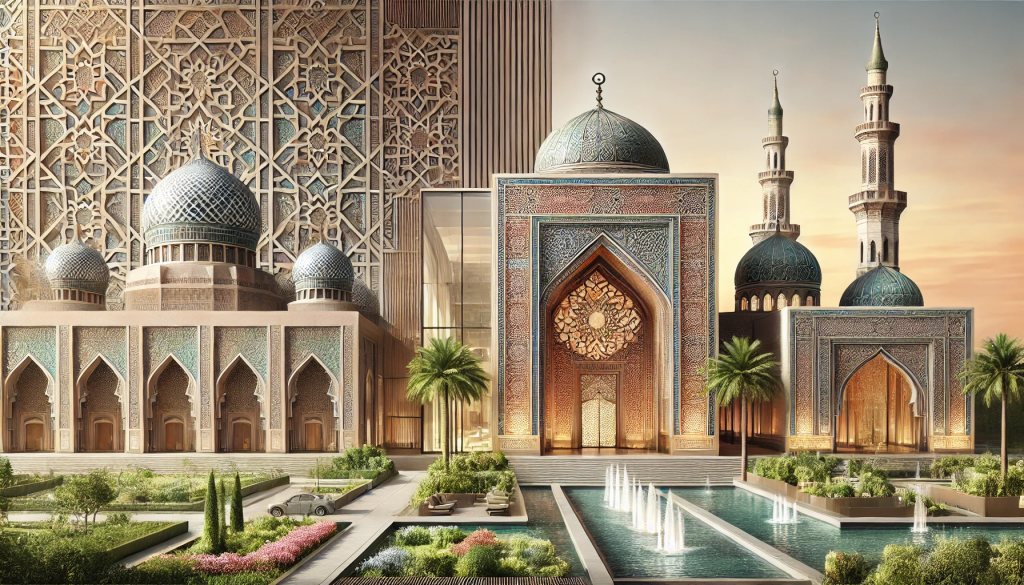
Islamic centres, also known as mosques or masjids, have been important institutions for Muslims for centuries. If not the first, these centres were, at the very least, one of the first places where Muslim communities could worship. In addition to serving as places of worship, these complexes have expanded to include many facilities ranging from educational to social, and even cultural. This article considers the broad scope of Islamic centres by tracing their historical roots, their current roles, and the growing hurdles they need to navigate within the evolving society.
The beginnings of these centres can be traced back to the time of Prophet Muhammad (peace be upon him). In the seventh century, Medina became home to the very first mosque. It was the first one Muslims built and served as a place for ritual prayers. This groundbreaking model became the gold standard for other educative mosques which needed to be established within the Islamic world.
Current Roles of Islamic Centres
Today, the Islamic centres have further developed their functions to meet the demands of the communities they serve. Among these functions are the following.
Religious Services: The basic Islamic centres offer places for the performance of the five daily prayers, Friday congregational prayers (Jumu’ah), and other special prayers during Islamic festivals like Eid al-Fitr and Eid al-Adha. They also offer Quran recitation classes, lectures, and counselling sessions.
Educational Activities: Various centres provide educational activities including weekend schools for young learners that specialise in Quranic recitation, Arabic, and Islamic law and ethics. The Islamic Centre of Pittsburgh, for example, has held Sunday school sessions and lecture series for the youth which have sought to deepen their understanding of Islam.
Community Services: To help alleviate the socio-economic needs of their communities, Islamic centres frequently manage food pantry programmes. It aided the impoverished, and set up health services. Noor Islamic Cultural Centre in Ohio, for instance, runs food drives every month and offers counselling to promote welfare within the community.
Interfaith Relations and Community Engagement: For many Islamic centres, promoting understanding and peace within the wider public is a key goal. This often involves dialogue with other faiths. They also organise inter-religious open houses and broader cooperative activities. The Islamic Centre of Pittsburgh has participated in community outreach activities by conducting Islam 101 classes to clear misconceptions on Islam, as well as being active in interfaith work.
Cultural Heritage: It is the responsibility of these centres to preserve the rich history of Islam. Therefore, they organise cultural events, exhibitions of various arts, and provide language classes about the traditions of the Muslim world.
For example, the Kyiv Islamic Cultural Centre in Ukraine has held festivals and educational classes to promote Islamic culture.
Challenges Facing Islamic Centres
Although they grant centres a great deal of their attention, Islamic centres face several issues:
Negative Propaganda and Islamophobia: The presence of strong misconceptions and negative publicity about Islam generates a schism of trust and faith. It further obstructs the constructive efforts made by the centres.
Financial constraints: The community’s support in financial terms, the construction of new centres, and funding of many economic activities. It is especially during economic slumps or changing demographics. It greatly limits performing activities.
Engagement of the Youth: The Islamic culture centres must tailor their programmes so that older youngsters and younger adults can grasp hold of them easily.
Sociotoxic violence against persons, which in some parts is the case with Islamic centres, raises additional problems of protection of the Islamic places of worship and the people who pray there.
Notable Islamic Centres Case Studies
Islamic Centre of Pittsburgh (ICP): ICP represents the Islamic community of Pittsburgh and serves as the largest mosque in the city, attracting hundreds of people for weekly prayers. Established in 1989, ICP provides social services irrespective of one’s faith. Educational outreach programmes, and interfaith dialogues to promote case understanding and goodwill.
Noor Islamic Cultural Centre (NICC): This Ohio-based mosque also serves as a cultural centre. NICC offers daily prayers, educational and community services. NICC also provides humanitarian services by offering relief to needy people regardless of their religion.
Kyiv Islamic Cultural Centre (KICC): This centre serves as a mosque as well as a cultural organisation in Ukraine. KICC provides spaces for daily prayers, Quranic studies, and other cultural activities. The centre also encourages interreligious dialogue to stimulate the development of Islamic culture. Women’s development is also housed in the centre through various workshops and educational programmes.
Conclusion
There is no doubt that the Islamic centres have a profound impact in the spiritual, social, and educational aspects of the Muslims in particular and the general population. These centres are places of worship, education, and inter-faith dialogue. By shifting to twenty-first century problems and taking on new roles, these centres continue to promote values such as care, togetherness, and respect, while further developing society.
FAQs
What does an Islamic centre do?
An Islamic centre is mainly a place to access worship for Muslims. It, however, tends to offer additional functions such as teaching, social work, and community service.
How do Islamic centres serve the welfare of the community?
Islamic centres serve the non-Muslim members of the community as well by providing services like food pantries, financial assistance, health clinics, and workshops, as well as cultural events.
In what ways do Islamic centres support interfaith dialogue?
Many Islamic centres take part in interfaith dialogue by organising open houses, attending community functions, and working with other faith organisations to promote understanding and respect.
In what ways do Islamic centres help with youth participation?
They provide classes as well as other general activities for the youth.
